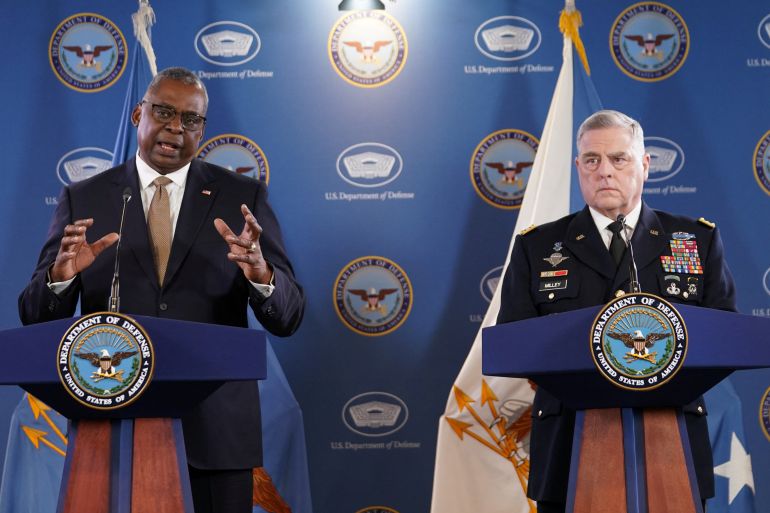
War News USA: Latest Updates on Military Conflicts and National Security
Table of Contents
Current Military Engagements Involving the USA
The USA has always maintained a significant military presence around the globe, and recent news highlights ongoing involvement in several high-stakes regions. From counter-terrorism efforts to peacekeeping missions, the U.S. military remains a dominant force in worldwide security.
Ongoing Conflicts Around the World
As tensions rise in various parts of the world, the USA finds itself involved in multiple theaters of conflict. Whether it’s ongoing operations in the Middle East, Africa, or in the Asia-Pacific region, American military personnel are engaged in complex, often dangerous missions.
US Military Presence and Strategic Operations
The U.S. military maintains a strategic presence in many regions globally, with military bases spanning across continents. These operations aren’t just about combat but also ensuring peacekeeping, deterrence, and providing humanitarian aid during crises. The US is known for being a key player in peace enforcement missions, as well as counterterrorism operations.
Afghanistan: Aftermath and Continuing Operations
While the https://ohiovoice.com/ ended its 20-year presence in Afghanistan in 2021, military engagements and counter-terrorism operations have continued to some degree. The situation in Afghanistan remains precarious, with the Taliban regaining control of the country. The US and its allies have been focused on preventing the country from becoming a haven for terrorist groups again, which involves limited operations and surveillance missions to monitor the situation.
Syria and the Middle East: The USA’s Role
In Syria, the US has been involved in a complex multi-year conflict, with its military forces working alongside Kurdish forces to combat ISIS. Despite efforts to reduce its footprint in the region, the US continues to play a crucial role in supporting regional security, often through airstrikes or special operations targeting terrorist cells. However, with shifting alliances and local dynamics, the future of US involvement in Syria is uncertain.
US Military and National Security Policies
US defense policies and strategies are constantly adapting to changing global threats. From the rise of China’s military strength to the instability in the Middle East, the U.S. is continuously reevaluating its approach to defense, cybersecurity, and foreign relations.
Biden’s Defense Strategy and Military Budget
President Joe Biden has focused heavily on modernizing the US military while addressing the evolving security environment. His administration has proposed significant increases in defense spending, prioritizing advanced technologies such as artificial intelligence, space defense, and cybersecurity. The military budget aims to ensure that the US maintains its global military dominance while shifting priorities to new forms of warfare.
Cybersecurity and Modern Warfare
With the rise of cyber threats, the battlefield is no longer limited to traditional physical engagement. Cybersecurity is a top priority for the US military, especially with rising concerns over foreign cyber-attacks from countries like Russia and China. The Pentagon has increasingly invested in offensive and defensive cyber capabilities to safeguard national security and critical infrastructure.
International Relations and Alliances
The USA’s global alliances play a crucial role in maintaining international security and deterring potential adversaries. These alliances ensure that the U.S. doesn’t fight alone and can rely on a network of military partnerships.
US Alliances with NATO and Beyond
The United States’ partnership with NATO remains vital in securing collective defense across the Western world. NATO’s mission is to ensure peace and security, and the US plays a central role in this mission. As tensions with Russia grow, particularly in Eastern Europe, the U.S. has increased its support for NATO countries to maintain stability and deter potential aggression.
Diplomatic Efforts to De-escalate Conflicts
While military power is a critical component of US strategy, diplomacy is equally important. The US continues to work through international organizations, such as the United Nations, and bilateral talks with adversarial nations to reduce tensions and find peaceful resolutions to conflicts. Recent talks with Iran regarding the nuclear deal exemplify the US’s commitment to diplomatic avenues, despite differing political views.
Public Opinion on War and Military Conflicts
The American public’s views on military engagement have shifted significantly over the years, especially after prolonged conflicts in Iraq and Afghanistan. The question remains: How do Americans feel about continued military action abroad?
How Americans View Ongoing Conflicts
Public opinion in the USA is often divided when it comes to military involvement. While some support the notion of American interventionism to safeguard global security, others are weary after the lengthy and costly wars of the past. The growing focus on domestic issues and military fatigue are influencing how Americans view future engagements abroad.
Veterans and the Aftermath of War
The emotional and physical toll of war extends far beyond the battlefield, with veterans facing numerous challenges when they return home. Mental health, healthcare, and reintegration into society are significant concerns. As the US military continues to play a prominent role in world affairs, the impact on veterans and their well-being remains an essential consideration for policymakers.
Conclusion: The Path Forward for US Military and Global Security
The role of the United States in global security and military engagements will remain influential for years to come. As international tensions evolve and new threats emerge, the US will likely continue to maintain a significant military presence worldwide. At the same time, efforts to modernize the military, address cybersecurity, and engage in diplomatic negotiations will be key to shaping the future of global peace and security. The path forward, however, will require a careful balance between military might, diplomacy, and the well-being of those who serve in the armed forces.




